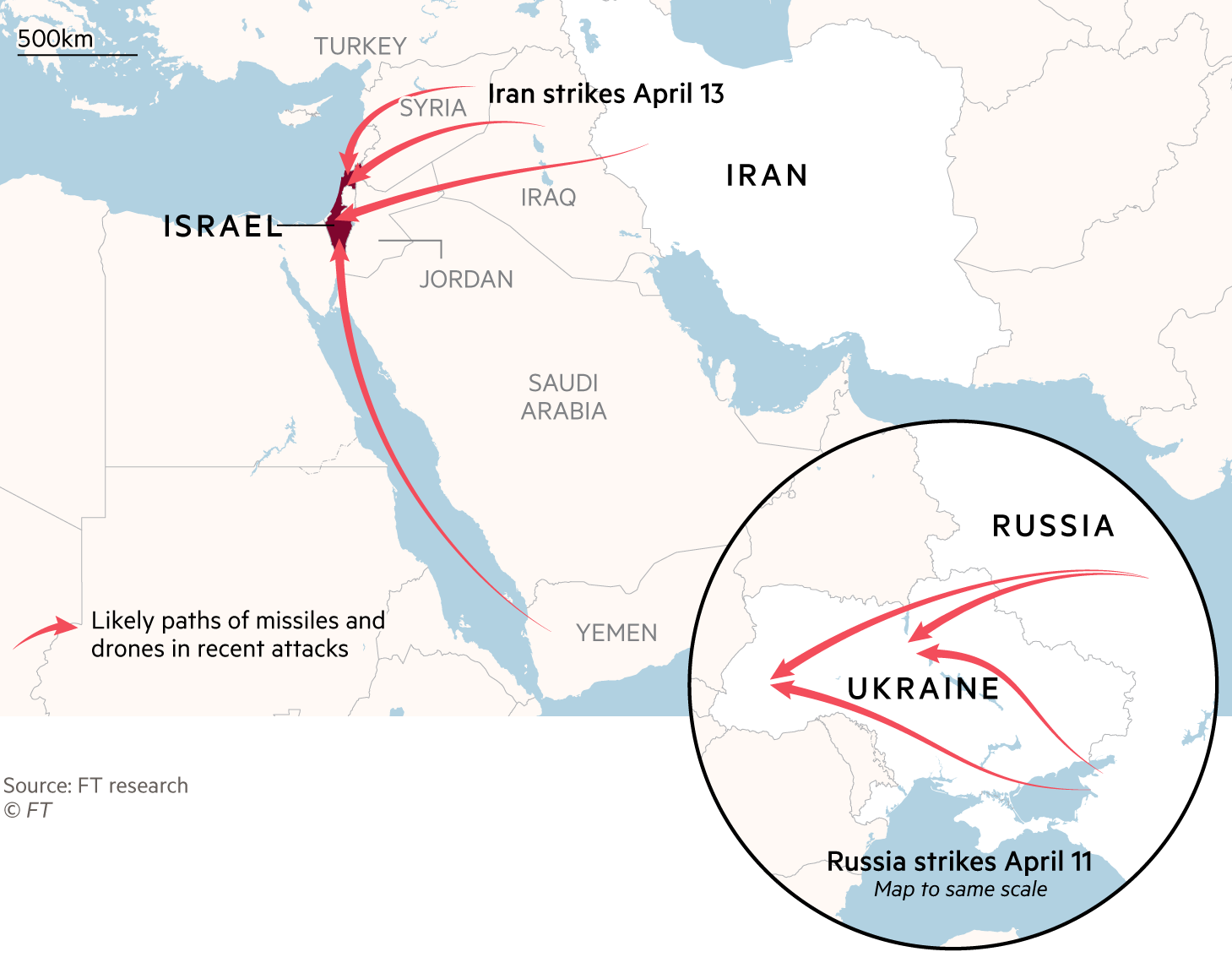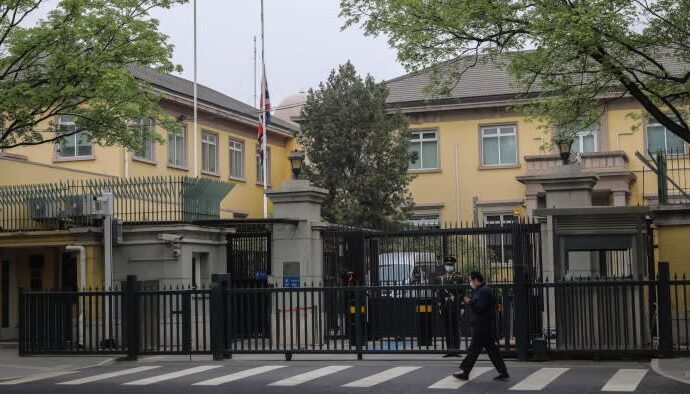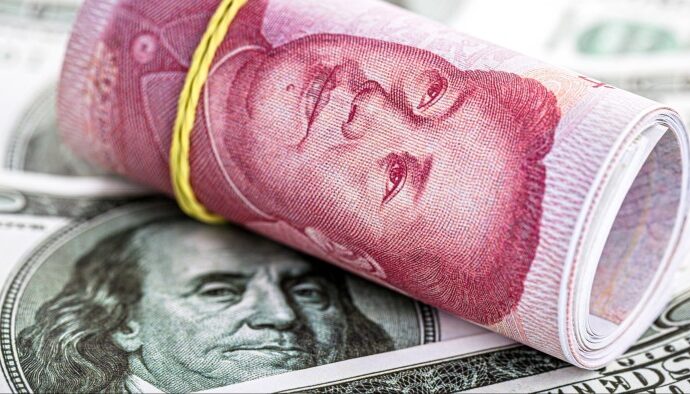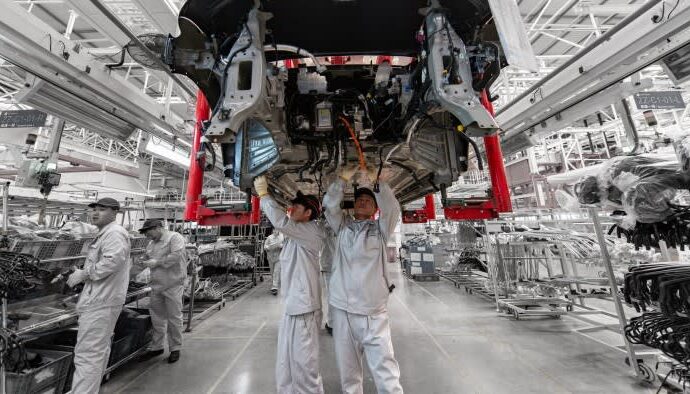Unlock the Editor’s Digest for free
Roula Khalaf, Editor of the FT, selects her favourite stories in this weekly newsletter.
Good morning. News to start: The UK’s opposition Labour party wants to attend regular meetings of EU foreign ministers if it wins power at an election this year — a suggestion that Brussels diplomats responded to with dismissive laughter.
Today, I bring you up to speed with EU foreign minister discussions about responding to Iran’s attack on Israel, and my Brussels colleague parses new polling that suggests European voters care far more about defence and security than climate or migration.
Tehran tightrope
Brussels will push forward with plans to impose additional sanctions on Iran in response to its attack on Israel, while also trying to keep the Islamic Republic talking as it strives to stop a wider war that the EU’s chief diplomat last night said loomed like “an abyss”.
Context: Iran attacked Israel on Sunday with scores of drones and missiles, in retaliation for a suspected Israeli strike on its consular building in Damascus. The attack was the first direct strike by the Islamic Republic on the Jewish state. Iran is already subject to hundreds of western sanctions, including for supplying drones to Russia for use against Ukraine.
The proposal discussed by EU foreign ministers on a video conference last night would piggyback on those existing measures related to Russia and extend them in two directions: to cover not just drones but also missiles; and to include shipments of the weapons to Iran’s external proxies such as Hamas and Hizbollah.
Josep Borrell, who chaired the meeting, said he had asked officials to start working on the sanctions proposals. People involved in the decision said that could mean the measures could formally be adopted as early as the next in-person gathering of foreign ministers next week.
“We want to have this work concluded quickly,” said one diplomat.
A further proposal from the Netherlands, Sweden and Czech Republic to designate Iran’s powerful Revolutionary Guards as a terror organisation was unlikely to reach consensus, officials said.
Past considerations of the highly explosive move to designate another state’s military as a terrorist organisation have gone nowhere.
Some member states now see additional sanctions as an important signal to Israel, conveying the message that the west is punishing Iran using economic tools in an effort to convince Israel to avoid military punishment.
But there remains a snag. France, Germany and the EU are signatories to the JCPOA nuclear control agreement with Iran, and have long held the belief that the deal is the only means to restrict Iran’s nuclear weapons program. It’s been on life support since the US unilaterally withdrew in 2018, but the European parties are keen to not shut that door completely.
“Leaders want to put pressure on Iran,” said a senior diplomat briefed on the summit preparations. “But the interaction with the JCPOA is quite key. How do we keep some form of engagement, while also responding [to the attack on Israel]?”
Chart du jour: Air defence

Israel’s successful interception of Iran’s barrage has raised comparisons with Ukraine’s plight under Russian attack. But experts say a long conflict could see Israel face a similar problem to Kyiv of depleted defences.
Guns or butter
Defence and security are top of the list of priorities for EU citizens ahead of the upcoming EU elections, outstripping concerns over the climate crisis and artificial intelligence, writes Daria Mosolova.
“Europeans are aware that the stakes are high at the ballot box,” European parliament president Roberta Metsola told reporters, presenting the most recent survey on EU public opinion published today.
Context: The Eurobarometer survey, conducted between February and March, is the last poll to come out before EU citizens elect a new European parliament this June. Separate polls in recent months have pointed to a growing support for far-right and populist parties across the bloc.
MEPs will be glad to see that 71 per cent of respondents said they were likely to vote this summer, up 10 percentage points from the previous election in 2019, though the actual turnout usually tends to be lower than predicted.
But as conflicts in the Middle East and Ukraine rage on, citizens’ concerns have shifted.
According to the poll, 37 per cent of respondents believe that in order to “reinforce its position in the world”, the EU should focus on defence, followed by energy independence, food security and competitiveness.
Climate action and emissions reduction — key concerns of voters in the last election — only came fifth on the list. Migration, a favourite topic of the (far) right, was eighth.
The importance of national security for EU citizens jumped in 2022 at the expense of more long-term sustainability policies, shortly after Russia’s full-scale invasion of Ukraine shook up the bloc’s priorities.
What to watch today
EU leaders meet for a two-day summit in Brussels.
G7 foreign ministers gather for a three-day gathering in Capri, Italy.
Now read these
Are you enjoying Europe Express? Sign up here to have it delivered straight to your inbox every workday at 7am CET and on Saturdays at noon CET. Do tell us what you think, we love to hear from you: europe.express@ft.com. Keep up with the latest European stories @FT Europe


